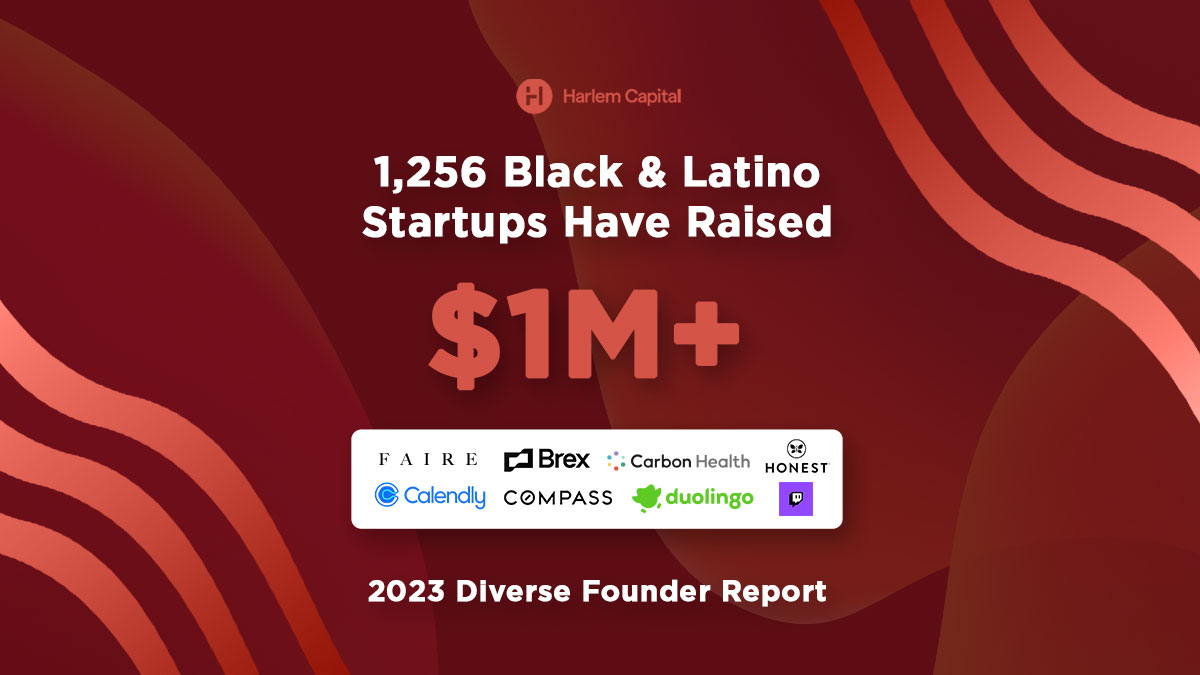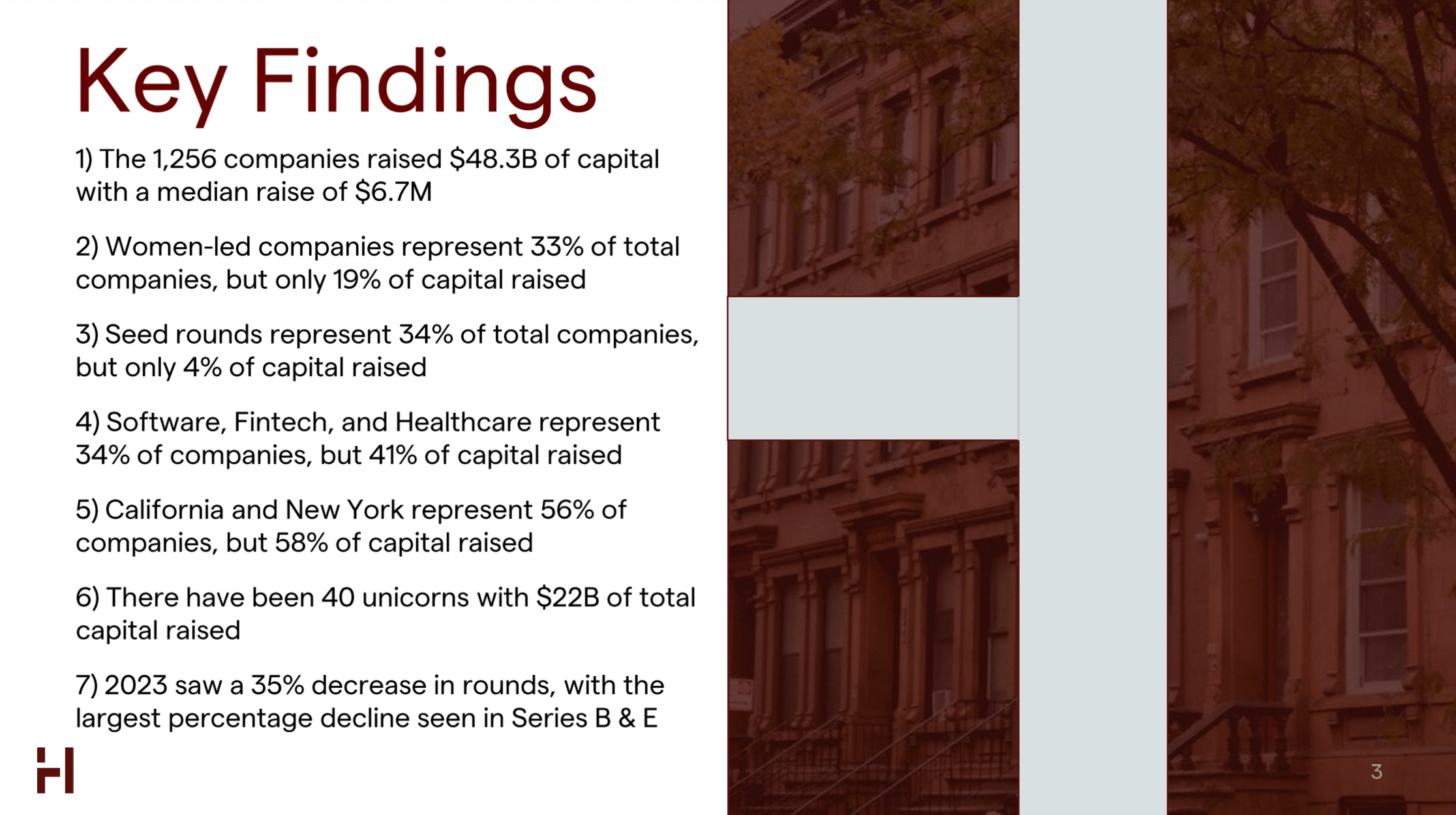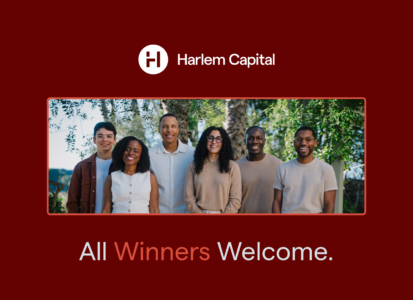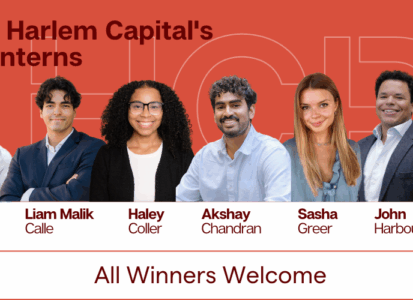1,257 Black and Latino Startups Have Raised $1M+ in VC Funding
by Harlem Capital
By Nicole DeTommaso and Savannah Green (Winter ‘24 Intern)

We just released Harlem Capital’s 2023 Diverse Founder Report.
In 2017, HCP started compiling a list of Black and Latino founders who had raised $1M+ of VC funding as there wasn’t any aggregated list online. We simply wanted to know who the top diverse founders were as they were the founders HCP wanted to back. So we started pooling data from across the internet.
Then we started raising for Fund I in 2018 and LPs kept asking, “But are there enough Black and Latino founders to have a diversity thesis for Harlem Capital?” Now this was more than curiosity as HCP had to prove we could find diverse founders across the country to invest in. So we doubled down and made the research into a formal report produced by HCP.
What’s new this year?
This year the report expanded from 1,128 companies to 1,257 companies that have raised $1M+. Additionally, we now provide insights into trends linking diverse unicorns with their university backgrounds and previous employers. Lastly, we’ve introduced the Top 25 Most Promising Startups list.
Though there has been a slowdown in the overall VC funding market in 2023, we’ve added:
- 129 Black & Latino founded companies to the $1M+ VC funded list
- $4.6B incremental capital raised
- 3 new diverse unicorns
- 2 new investors to the list of those who have made 25+ investments into Black & Latino founders
We’ve also seen above market raise amounts across stages from 50+ Black & Latino founded companies in 2023, with 25 experiencing consistent growth YoY despite market conditions.
Harlem Capital is confident that we will continue to see growth in the Black & Latino VC funding market as more companies scale and more diverse investors enter the space.

Who are the founders by gender and race?
Out of the 1,257 companies, 33% are women founders and 67% are men. However, women only received 19% of total capital raised. In terms of median capital raised, men have raised 1.5x more than women, Black men have raised 1.8x more than Black women and Latino men have raised 1.6x more than Latina women. Latino men continue to have the highest median raised of $8.3M.

What industries are they in?
This year’s top industries continue to be software, fintech, and healthcare, representing 34% of all companies founded. The top industries by raise amount are also fintech, software, and healthcare totaling $19.7B of capital raised. CleanTech has the highest median raised at $14M. The top industries have remained relatively consistent since last year, with the addition of information tech and big data, while mobile, adtech, cybersecurity, and marketplace sectors have seen a decline.

Where are these companies headquartered?
Similar to the overall venture landscape, 56% of the companies’ headquarters are in California and New York. However, California and New York represent 58% of funding, with California based companies representing 39% of total funding. Companies in Louisiana and Wisconsin have the highest median raises of $24M and $23M, respectively.

What round stages are represented?
The report covers 16 funding round stages. Across 1,257 companies, 20% have raised a Series B+ round and Series D+ rounds account for 29% of total capital raised. The Top 10 largest funding rounds in 2023 totaled $1.3B, representing 50% of this year’s total capital raised, a decrease from 63% in 2022.

Who are the most active investors?
Our report includes over 6,000+ investors across 1,257 companies. Leading the pack are 22 investors who have made 25+ investments and represent 979 investments total. The list includes different types of VC funds including accelerators, diverse-led & diversity-focused funds, corporate venture arms, and more.

Who are the diverse unicorns?
There are 40 Black & Latino founded unicorns, 3 were added to the list this year. They’ve raised $22B in capital to date with a median raised of $459M. Notably, 32% of these companies achieved their unicorn valuation by the Series D funding stage and have a median funding year of 2014. From a gender and race perspective, 80% of diverse unicorns are men and 60% are Latino.
Out of 62 Black and Latino unicorn founders, 5+ attended either Harvard, Stanford, or MIT. Furthermore, 3+ founders previously worked at Microsoft or Goldman Sachs.

Who are the most promising startups of 2023?
We’ve identified 25 of the most promising startups that have raised VC funding in 2023. Each exceeded above market raise amounts for their stage and exhibited consistent growth YoY despite market conditions. In total, they have raised $723M, with a medium raised of $19M. Fintech, healthcare, cleantech, and software constitute 60% of the sectors represented, with Fintech being the largest at 24%. Additionally, 60% of the companies had headquarters in California and New York.

Conclusion
This year’s report included more data than ever before. One of our core beliefs is that Data Drives Decisions so this new data will hopefully help more funds find incredible founders and remind diverse founders that they aren’t alone. Over 1,200 Black and Latino founders have raised $1M+ of venture funding.
We didn’t have the data to prove our diversity thesis over 5 years ago, but now the data is clearer than ever before.
We are at the beginning stages of recognizing diversity investing as a crucial asset class. These groups, particularly Black women, remain underfunded yet have collectively generated $100B+ in value. We also continue to believe that this list will represent $1T+ in value by 2030. It is our mission at Harlem Capital to serve these founders at the earliest stages and we’re excited that we represent 38 companies on this list.
Check out the airtable to see the full list of 1,257 companies.
Stay up to date on all things Harlem Capital by following us on X, LinkedIn & Instagram + subscribing to Road to 1,000, our monthly newsletter.


